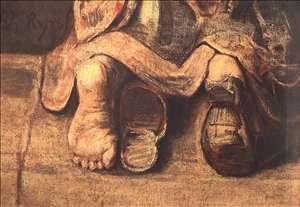The Visible Universe within 14 billion Light Years
As a Minnesota native and avid sports fan, it’s no wonder the Twins have a special place in my heart. They won two world championships during my childhood, once in 1987, when I was 8 years old, and another in 1991, when I was 12. I still remember running home from school with my best friend during certain autumn afternoons so we wouldn’t miss an at-bat of the Series. Well, much has changed since then. The Twins, though a perennial division contender, are notorious for making the playoffs, only to be immediately eliminated (usually a casualty of the seemingly invincible Yankees). So, the Twins’ marketing team has had to devise plans to get fans, and more importantly, keep them. One recent campaign that stood out emphasized the tagline, ‘Get to know ’em.’ The theory, I think, was to attract committed fans through increased exposure. They figured people would become more passionate (fanatical) as they became more knowledgeable. They were right. The more I watched these less heralded teams of the new millennium, the more invested I became. They weren’t that great, even good, but I knew the lineup, I knew the players, their tendencies, what made them tick. And I grew to love those teams.
So it is, or can be, with Jesus—if only we’d ‘Get to know Him.’
Over the next handful of entries I will seek to bring to the forefront some of the lesser known, or at least less mainstream, attributes of the Christ. Of course, in the hopes we’d become bigger fans.
Here goes.
He is the radiance of the glory of God and the exact imprint of his nature, and he upholds the universe by the word of his power. –Hebrews 1:3 (ESV)
It’s probably safe to assume most understand that Jesus, the Son, actually created (John 1:3). The Gospel of John says, ‘In Him was life…’ (verse 4). This, then, is not only true spiritually, but physically as well. But here's where it gets really good. Because Jesus spoke, and the universe came to be, He has absolute governance over it…to the point that its very subsistence is directly dependent upon the power of His enduring word. Let that marinate for a minute. Jesus, with divine authority, created life—all that exists. And He has, to this point, upheld His creation; He (literally His word) is the Force that causes all to hold together and persist—from the broadest standpoint of the course of supernatural history (God’s will for evil to eternally perish and His children to be rescued through His lifeblood unto salvation) all the way down to the natural forces and principles that rule the minutest of atomic particles. If that weren’t enough, He will, again, by His word, continue to cause universal solidarity (in the physical and spiritual) until the End.
And we ever doubt His power? To my shame, I have…and do.
Jesus is the Lamb of God because He takes away the sins of the world, not because He’s weak. Don’t let the Sunday school flannel graphs fool. When it comes to strength, power, He is the Lion of Judah, uncontested in His reign. There is nothing that exists that is not subject to His authoritative command. Another way to put it: the power of His word holds continued dominion over that which it created (and creates…remember, it is the Holy Spirit, of Jesus Himself, that breathes spiritual life into the hearts of men).
This concept of Jesus’ supreme and sustaining word isn’t isolated. Paul’s letter to the Colossians reiterates the writer of Hebrews:
And He is before all things, and in him all things hold together. –Colossians 1:17 (ESV)
What, then, can we conclude? Of the many things, let’s focus on two.
First, there is great profundity that Jesus was the member of the Godhead whom created. He spoke, and it was. He speaks, and it is upheld. And He will speak, with unparalleled power, when He comes again, riding on the clouds of heaven. He gave life at the very Beginning, and then He gave His own to ransom our captive hearts. Does that hit you like it does me? The Potter was rejected, crucified at the hands of the clay. But not because He was at all impotent, and thus, subject to forces of evil or man. He was willing, simultaneously for the sake of His Name and our rescue.
And secondly, this same Jesus, the God who holds the entire expanse of the universe together by the divine decree of His lips, cares for you and me. Intimately. And so He will continue to uphold us physically and spiritually—until the work He began is completed. This, even when all seems to be falling apart.
But anyone can care, right? Jesus takes a step further—to a point no one else can come close. Not only do we know (and are getting to know better) the God who cares about us…we know the One supremely powerful to carry us to eternity in heaven.
Grace to you, to get to know Him better,
Voice of another






